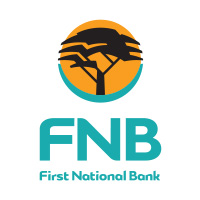The Evolution of Banking in South Africa: From ATMs to AI** **
July 25, 2024, 8:52 pm
**
In the heart of South Africa's banking landscape, a transformation is underway. The once ubiquitous ATM is fading, while digital banking and advanced technologies rise to prominence. This shift reflects a broader trend, driven by innovation, safety concerns, and changing consumer habits.
ATMs were once the lifeblood of banking. They stood on street corners, offering cash at the push of a button. But now, they are becoming relics of a bygone era. The Outlier's recent investigation reveals a startling decline in ATM availability. Safety concerns and the rise of digital banking are pushing consumers away from these machines.
Why is this happening? The answer lies in the digital revolution. South Africans are increasingly opting for online banking. Mobile apps have become the new norm. With a smartphone in hand, customers can transfer money, pay bills, and check balances without stepping outside. Convenience is king.
Safety is another critical factor. Reports of ATM theft and fraud have made many wary. The fear of being targeted at an ATM has led to a decline in usage. In-store cash points are emerging as a safer alternative. Retailers are stepping in, offering cash withdrawal services that feel more secure.
But this shift isn't just about convenience and safety. It's also about the banks themselves. Major players like Capitec, Absa, and Standard Bank are investing heavily in technology. Their focus is on cloud migration, data science, and artificial intelligence. This investment is reshaping the banking experience.
Capitec, for instance, has ramped up its IT spending by 27%. The bank is now South Africa's largest retail bank, boasting 22 million customers. Its strategy revolves around cloud technology and system stability. By moving data to the cloud, Capitec aims to enhance its services and minimize downtime.
Standard Bank is also on the cutting edge. It reported a 14% increase in IT spending, driven by a commitment to system stability and innovation. The bank has seen a significant reduction in system outages, a crucial factor in maintaining customer trust.
Nedbank, however, has taken a different path. After a massive digitization project, its IT spending plummeted by 80%. Yet, the bank continues to invest in new technologies, recognizing the importance of staying relevant in a digital world.
Absa is not far behind. Its IT budget grew by 9%, with a strong focus on AI and machine learning. These technologies are not just buzzwords; they are integral to enhancing cybersecurity and improving customer engagement. Absa's investment in data science is aimed at personalizing offers for clients, making banking more relevant and engaging.
FirstRand, the parent company of FNB, also saw its IT costs rise by 18%. This reflects a broader trend in the banking sector. As cloud migration projects mature, banks are reallocating funds towards AI and cybersecurity. The digital landscape is expanding, and with it, the need for robust security measures.
The tech skills gap poses a significant challenge. Banks are not just investing in technology; they are also investing in talent. Upskilling existing staff and attracting new talent in AI, machine learning, and cybersecurity is crucial. Capitec noted that 15% of its external appointments were in these specialized areas.
As ATMs fade, the banking landscape is evolving. Digital banking is here to stay. The convenience of mobile apps and online services is reshaping how South Africans interact with their finances.
But this evolution comes with challenges. The reliance on technology raises questions about security and accessibility. Not everyone has access to smartphones or reliable internet. Banks must ensure that their services remain inclusive.
The future of banking in South Africa is bright, but it requires careful navigation. As banks invest in technology, they must also prioritize customer safety and accessibility. The balance between innovation and security will define the next chapter in South Africa's banking story.
In conclusion, the decline of ATMs marks a significant shift in the banking landscape. Digital banking is becoming the norm, driven by safety, convenience, and technological advancements. As South Africa's banks embrace this change, they must remain vigilant. The road ahead is paved with opportunities, but it also demands a commitment to security and inclusivity. The evolution of banking is not just about technology; it's about people.
In the heart of South Africa's banking landscape, a transformation is underway. The once ubiquitous ATM is fading, while digital banking and advanced technologies rise to prominence. This shift reflects a broader trend, driven by innovation, safety concerns, and changing consumer habits.
ATMs were once the lifeblood of banking. They stood on street corners, offering cash at the push of a button. But now, they are becoming relics of a bygone era. The Outlier's recent investigation reveals a startling decline in ATM availability. Safety concerns and the rise of digital banking are pushing consumers away from these machines.
Why is this happening? The answer lies in the digital revolution. South Africans are increasingly opting for online banking. Mobile apps have become the new norm. With a smartphone in hand, customers can transfer money, pay bills, and check balances without stepping outside. Convenience is king.
Safety is another critical factor. Reports of ATM theft and fraud have made many wary. The fear of being targeted at an ATM has led to a decline in usage. In-store cash points are emerging as a safer alternative. Retailers are stepping in, offering cash withdrawal services that feel more secure.
But this shift isn't just about convenience and safety. It's also about the banks themselves. Major players like Capitec, Absa, and Standard Bank are investing heavily in technology. Their focus is on cloud migration, data science, and artificial intelligence. This investment is reshaping the banking experience.
Capitec, for instance, has ramped up its IT spending by 27%. The bank is now South Africa's largest retail bank, boasting 22 million customers. Its strategy revolves around cloud technology and system stability. By moving data to the cloud, Capitec aims to enhance its services and minimize downtime.
Standard Bank is also on the cutting edge. It reported a 14% increase in IT spending, driven by a commitment to system stability and innovation. The bank has seen a significant reduction in system outages, a crucial factor in maintaining customer trust.
Nedbank, however, has taken a different path. After a massive digitization project, its IT spending plummeted by 80%. Yet, the bank continues to invest in new technologies, recognizing the importance of staying relevant in a digital world.
Absa is not far behind. Its IT budget grew by 9%, with a strong focus on AI and machine learning. These technologies are not just buzzwords; they are integral to enhancing cybersecurity and improving customer engagement. Absa's investment in data science is aimed at personalizing offers for clients, making banking more relevant and engaging.
FirstRand, the parent company of FNB, also saw its IT costs rise by 18%. This reflects a broader trend in the banking sector. As cloud migration projects mature, banks are reallocating funds towards AI and cybersecurity. The digital landscape is expanding, and with it, the need for robust security measures.
The tech skills gap poses a significant challenge. Banks are not just investing in technology; they are also investing in talent. Upskilling existing staff and attracting new talent in AI, machine learning, and cybersecurity is crucial. Capitec noted that 15% of its external appointments were in these specialized areas.
As ATMs fade, the banking landscape is evolving. Digital banking is here to stay. The convenience of mobile apps and online services is reshaping how South Africans interact with their finances.
But this evolution comes with challenges. The reliance on technology raises questions about security and accessibility. Not everyone has access to smartphones or reliable internet. Banks must ensure that their services remain inclusive.
The future of banking in South Africa is bright, but it requires careful navigation. As banks invest in technology, they must also prioritize customer safety and accessibility. The balance between innovation and security will define the next chapter in South Africa's banking story.
In conclusion, the decline of ATMs marks a significant shift in the banking landscape. Digital banking is becoming the norm, driven by safety, convenience, and technological advancements. As South Africa's banks embrace this change, they must remain vigilant. The road ahead is paved with opportunities, but it also demands a commitment to security and inclusivity. The evolution of banking is not just about technology; it's about people.

